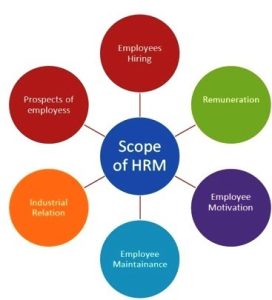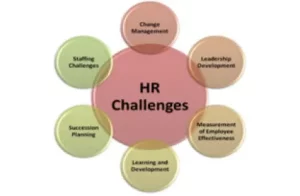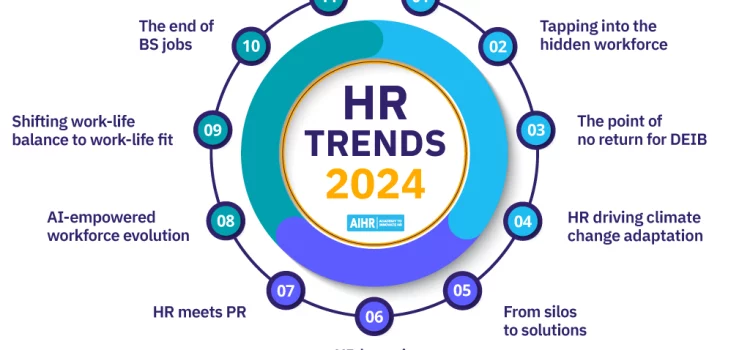
Introduction
Embarking on a career in Human Resource Jobs in Education sector can be a fulfilling journey marked by unique challenges and rewarding opportunities. This comprehensive guide aims to illuminate the path to success in such roles, providing insights and strategies to navigate the intricacies of this field effectively.
Understanding Human Resource Jobs in Education
Human Resource Jobs in Education encompass a diverse range of responsibilities focused on managing personnel matters within educational institutions. From recruitment and training to conflict resolution and policy implementation, HR professionals play a vital role in fostering a conducive work environment conducive to learning and growth.
Human Resource Jobs in Education Definition and Scope

Human Resource Jobs in Education involve overseeing various aspects of employee relations, including recruitment, onboarding, performance management, and policy adherence. These roles ensure that educational institutions maintain compliance with relevant regulations while fostering a supportive and inclusive work culture. The significance of HR roles in educational settings cannot be overstated. These professionals serve as liaisons between staff and administration, advocating for employee rights and well-being while aligning organizational objectives with personnel management strategies.
Qualifications and Skills Required
Succeeding in Human Resource Jobs in Education sector requires a blend of educational qualifications and interpersonal skills tailored to the unique needs of educational environments. While specific educational requirements may vary depending on the institution and role, a background in human resources management, organizational psychology, or education administration can provide a solid foundation for aspiring HR professionals. In addition to academic credentials, soft skills such as effective communication, conflict resolution, and empathy are indispensable in HR roles within education. These skills enable professionals to navigate complex interpersonal dynamics and resolve conflicts amicably.
Job Opportunities and Career Paths
The landscape of Human Resource Jobs in Education offers a myriad of opportunities for career growth and advancement, catering to individuals with diverse interests and expertise. From entry-level positions such as HR assistants to senior roles like HR directors or chief human resource officers (CHROs), educational institutions offer a hierarchical structure that allows for upward mobility and specialization in various HR functions. Continued professional development, networking, and acquiring specialized certifications can pave the way for advancement in HR careers within education. Opportunities for leadership roles, consultancy, or transitioning to administrative positions further enhance career prospects in this field.
Challenges Faced in Human Resource Jobs

Despite the fulfilling nature of Human Resource Jobs in Education, professionals may encounter various challenges unique to the industry that require innovative solutions and resilience. Educational institutions are often characterized by diverse workforce demographics, including faculty, administrative staff, and support personnel. Balancing the needs and expectations of diverse stakeholders while upholding organizational values can pose significant challenges for HR professionals. Budgetary constraints and resource limitations in educational institutions may impact HR initiatives related to recruitment, training, and employee benefits. Creativity and resourcefulness are essential for HR professionals to optimize available resources while meeting the needs of employees and the organization.
Strategies for Success
Navigating the complexities of HR roles in education requires the implementation of effective strategies tailored to address common challenges and maximize opportunities for success. Clear and transparent communication is paramount in HR roles, fostering trust and transparency among employees while ensuring alignment with organizational goals and policies. Conflicts are inevitable in any workplace setting, and HR professionals must possess the skills to resolve disputes amicably and facilitate positive outcomes for all parties involved.
Training and Development
Continuous learning and professional development are integral to success in HR roles within education, enabling professionals to stay abreast of industry trends and best practices. Engaging in ongoing training programs, workshops, and seminars allows HR professionals to enhance their skills and knowledge base, staying updated on regulatory changes and emerging trends in the field. Pursuing relevant certifications such as SHRM-CP (Society for Human Resource Management Certified Professional) or PHR (Professional in Human Resources) demonstrates commitment to professional excellence and can enhance career prospects in HR.
Networking and Community Engagement

Building a robust professional network and actively engaging with educational communities are essential for HR professionals to stay connected and informed within the industry. Attending industry conferences, joining professional associations, and leveraging social media platforms can facilitate networking opportunities and foster collaborations with peers and industry experts. Engaging with educational communities, including faculty, students, and alumni, enables HR professionals to gain insights into the unique needs and challenges of academic institutions, fostering partnerships and promoting organizational objectives.
Future Trends and Innovations
The landscape of HR in education is continually evolving, shaped by technological advancements, demographic shifts, and changing educational paradigms. The integration of technology, such as HRIS (Human Resource Information Systems) and AI-driven recruitment tools, is revolutionizing HR practices in education, streamlining processes and enhancing efficiency. Adapting to evolving educational landscapes, including remote learning, hybrid classrooms, and competency-based education models, requires HR professionals to remain agile and proactive in addressing emerging needs and challenges.
FAQs
Here are some common questions about HR jobs in education:
- What qualifications are required for HR roles in education?
- How can HR professionals address conflicts among faculty and staff?
- What are the emerging trends in HR technology for educational institutions?
- Are there specialized certifications available for HR professionals in education?
- How can budget constraints impact HR initiatives in educational settings?
- What role does networking play in advancing HR careers in education?










